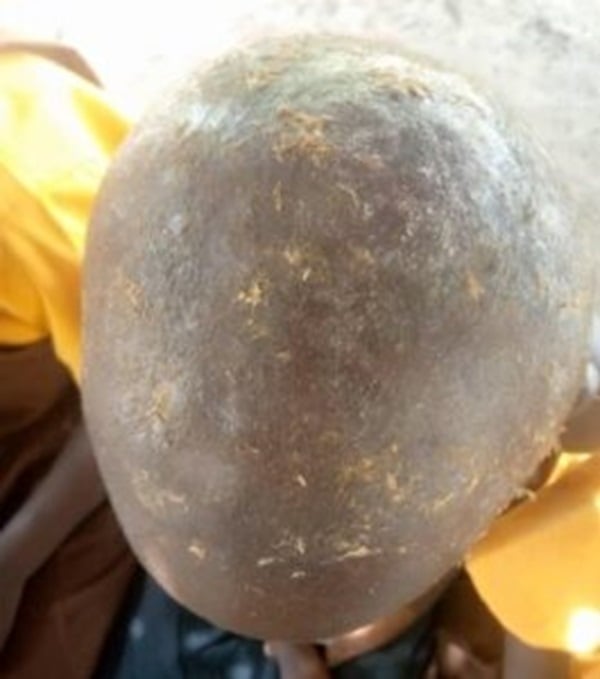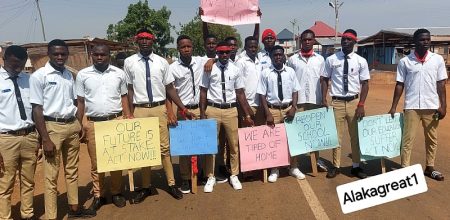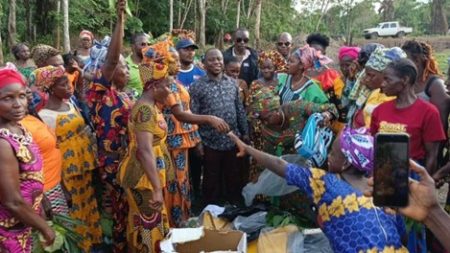The remote farming community of Avetakpo in the Volta Region of Ghana is grappling with a burgeoning health crisis. A mysterious skin disease, characterized by intense body pain and sleeplessness, has swept through the area, affecting over 46 residents, including both children and adults. The disease’s rapid spread and the lack of a definitive diagnosis have caused significant anxiety and fear among the community members, as they remain uncertain about the illness’s cause, treatment, and potential long-term effects. The situation is further exacerbated by the community’s limited access to healthcare and clean drinking water, making them particularly vulnerable to such outbreaks.
Togbe Kwasi Amedor III, the sub-divisional chief of Mepe Gbavie-Dekume, has issued an urgent plea to the government for immediate intervention. He highlights the dire financial situation of the affected families, who are unable to afford the necessary medical care. The Ho East District Health Directorate has estimated the total treatment cost for all affected individuals to be GH₵6,642.50, an amount far exceeding the community’s collective resources. The chief’s appeal underscores the desperate need for financial assistance to ensure that those suffering from the disease receive timely and appropriate medical attention.
Compounding the health crisis is the community’s lack of access to clean drinking water. Residents often resort to using water sources shared with livestock, raising serious concerns about water contamination and its potential link to the outbreak. This lack of basic sanitation infrastructure further jeopardizes the community’s health and wellbeing, increasing their susceptibility to waterborne diseases and hindering their ability to effectively combat the current skin disease outbreak. The chief emphasizes the need for long-term solutions, including the provision of clean water and improved healthcare infrastructure, to address the root causes of the community’s vulnerability.
The unknown nature of the disease presents a major challenge to both treatment and prevention efforts. Without a clear understanding of the disease’s etiology, health officials are unable to implement targeted interventions or provide effective guidance to the community. This uncertainty fuels fear and speculation, making it crucial for health authorities to prioritize investigations into the disease’s origin and develop appropriate diagnostic and treatment protocols. The chief’s call for government support emphasizes the urgency of this investigation, as the lack of information hampers effective management of the outbreak and leaves the community susceptible to further spread.
Togbe Amedor III’s plea is a desperate call for action, highlighting the multiple layers of vulnerability facing the Avetakpo community. The combination of a rapidly spreading, unidentified illness, limited access to healthcare and clean water, and the community’s financial constraints creates a perfect storm for a public health crisis. The chief’s appeal underscores the urgent need for a multi-pronged approach from the government, addressing both the immediate needs of the affected individuals and the underlying systemic issues contributing to the community’s vulnerability.
The situation in Avetakpo serves as a stark reminder of the health disparities that exist within Ghana and the critical need for proactive measures to strengthen healthcare systems, improve access to basic amenities like clean water, and ensure that vulnerable communities are equipped to effectively manage health crises. The government’s response to this outbreak will be crucial in demonstrating its commitment to the health and well-being of its citizens, particularly those in remote and marginalized communities. A swift and comprehensive response is needed not only to alleviate the immediate suffering of the Avetakpo community but also to prevent similar outbreaks in the future.














